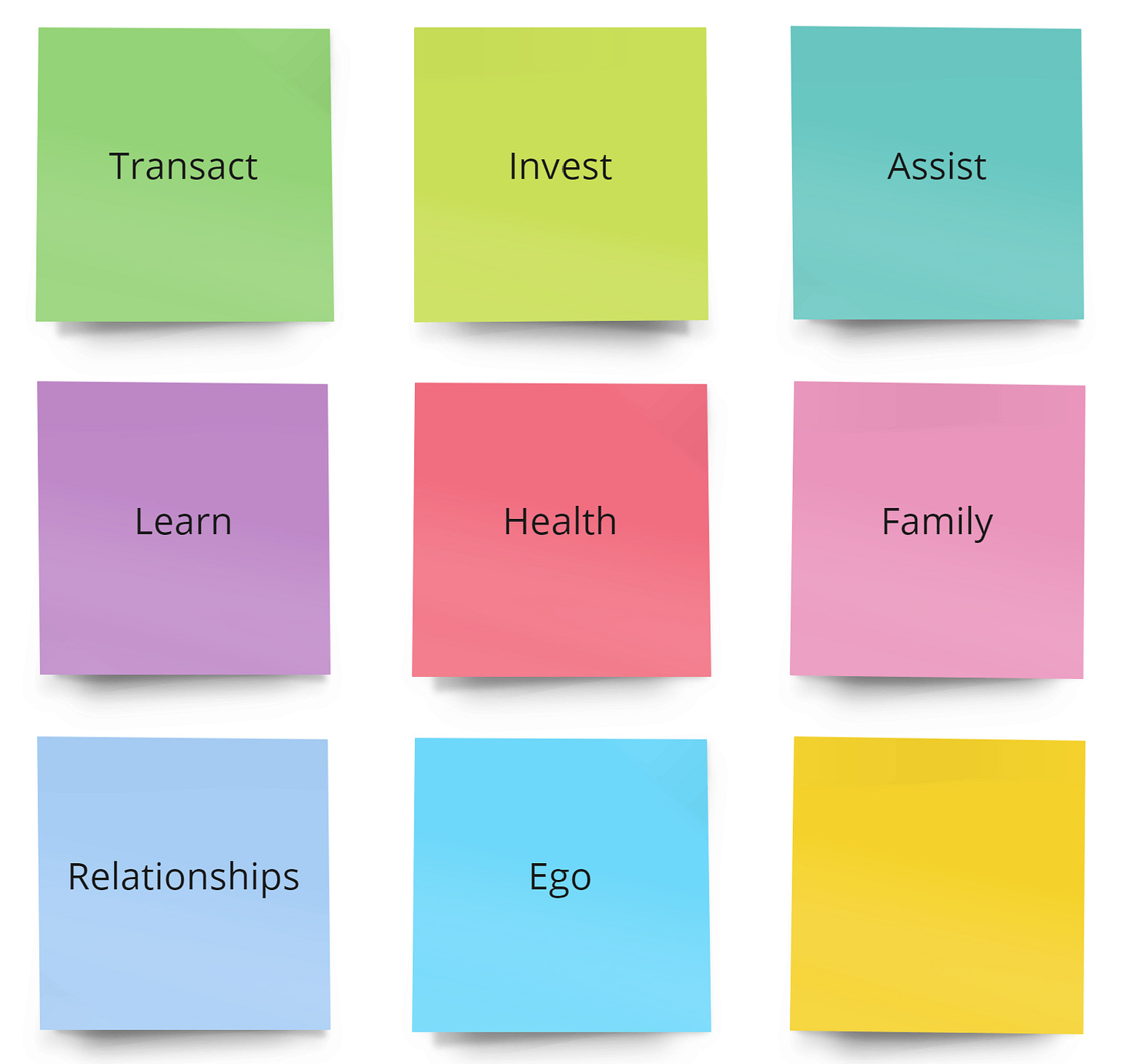A trifle consoles us, because a trifle upsets us.
- Blaise Pascal
It’s often the little things that upset us, so usually it doesn’t take much to make us feel better.
I have been thinking about how it takes so little to make us feel upset — the slightest hint of disagreement, a small challenge, a “No”, a diverging viewpoint. It is especially easy to put people off these days, whether you want to or not. We are fragile and needy sentient beings.
On the other hand, it is also very easy to make someone feel good. The smallest act of kindness, an appreciative word, a “you’re right”, regular phone calls or texts. I have started realising that people just want to feel appreciated and acknowledged. It is a basic human need, and something that is easy to overlook in the narcissism of our own minds. I haven’t been great at reading these cues either, but this realisation has made it easier for me to be more aware.
Resilience is accepting your new reality, even if it's less good than the one you had before. You can fight it, you can do nothing but scream about what you've lost, or you can accept that and try to put together something that's good.
- Elizabeth Edwards
All of us are struggling with the reality of the pandemic. We see this period of our lives as painful, difficult, and distressing. We often talk about how ‘things will never be the same again’ — the way we travel, socialise, learn, work, connect — ‘our lives will never return to normal’. Of course, this assumes that our breakneck pace before the pandemic was normal.
We have all experienced a wide range of emotions these past few months — anxiety, fear, anger, despair, grief. Some of these feelings are a result of the direct impact on our day to day — the loss of presence, touch, and connect. Others can be attributed to emerging realities that are completely outside our sphere of influence — record rises in number of cases, the development and availability of a vaccine, lifting of travel restrictions, anti-maskers, the uncertainty surrounding educational instruction. Accepting that we cannot change certain realities — certain absolute truths — can enable us to recalibrate our focus on what we can influence. The older we get the more we realise the importance of this acceptance. We also gain more experience with navigating change in our lives. No wonder the younger generation is more distressed and restless with lockdowns than the older generation.
Most transitions in our life involve change that require adjustment. The pandemic is another one of the many transitions in our life. Most such difficult periods seem almost rewarding and manageable in retrospect — ones in which we often find meaning and purpose, but realise only much later with the benefit of hindsight.
Yesterday’s struggles are today’s ‘good old days’. Our ability as humans to dilute our memories of unpleasant experiences is exemplary. This perhaps explains my years of grappling with accounting exams and how I can hardly recall those torrid times.
May it also explain mothers’ inexplicable willingness to go through childbirth multiple times? I’m not sure.
What I am sure of is we will get through this better and stronger. We see 2020 as an anomaly; a pothole on the autobahn of the human race and its unrelenting progress. Yet, we must also see this as a year of reckoning — one in which we recalibrate and pick up better habits and routines, useful skills, calmer behaviours, kinder thoughts — one in which we strive towards a more equitable, sustainable, and nourishing normal.
So how do we become the best version of ourselves everyday? It sounds like a daunting task. There are many self-examination and productivity techniques, tools, and systems out there. Last week I read about Henrik Werdelin’s quest to be good at everything on the Superorganizers Substack written by Dan Shipper (h/t). You may not have access to this paid post, so I will distill the message here.
Say hello to the 8+1 system. This can help you to become as good at every area of your life as you can be.
Break down your life into 8 buckets. For instance:
Transact: Make enough money to support yourself
Invest: Do things where your input (work, money, time) today compounds over time
Assist: Help others
Learn: Acquire skills and knowledge you need to move forward in any area
Health: Care for your body - exercise, sleep, meditation, food. Your body is your hardware, your mind is your software. Either breaks down, everything else breaks down.
Family: Spend time with and care for the people you live with
Relationships: Connect with people in your life outside your family
Self-kindness: Do small things that make you happy every day
For your +1 bucket, use a digital or physical notebook to list your buckets and the activities within each one. This creates a holistic, big picture view of life that can help you see where you are doing well and falling short. Review these eight buckets, say weekly, to make sure they are well-balanced. Check that every bucket is getting adequate attention.
Feel free to make up your own buckets. You could also do this as a mental exercise instead of using notebooks. If you try out this system, I look forward to hearing about your experience. I am giving it a shot too.
Title Credits
This is perhaps one of my top 3 all-time favourite tracks. As always, 🎧 recommended.
Bonus material - check out this incredible Regret #9 guitar solo studio recording by Guthrie Govan. 🤩
I’ve been thinking about this…
When you understand that you don’t have to justify your dreams to anyone else for any reason, that’s the day you truly begin to step into who you’re meant to be.
- Rachel Hollis



Absolutely loved this one Harsh!
Beautiful writing Harsh ❤️❤️❤️